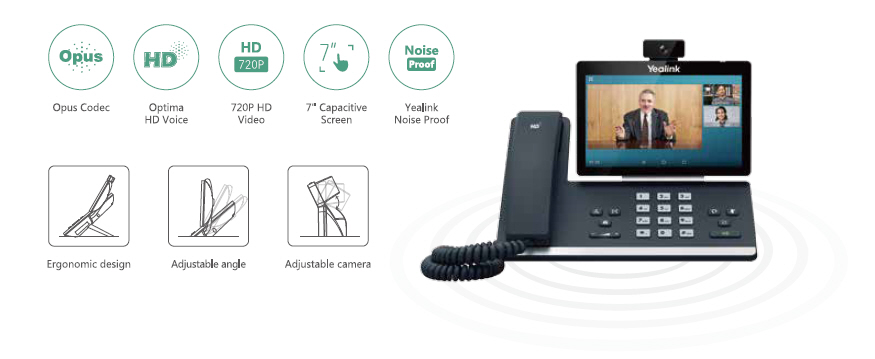Introduction
In the fast-paced world of modern business, effective communication is vital. Companies are on a constant quest to find cost-effective solutions that enhance their communication capabilities while keeping expenses in check. This has led many businesses to explore two primary options: VoIP Phone Systems and traditional PBX (Private Branch Exchange) systems. In this article, we will take an in-depth look at both systems, comparing their features, costs, benefits, and drawbacks. By the end of this exploration, you’ll have a clearer understanding of which communication solution might be best for your organization.
Cost-Effective Communication: VoIP Phone Systems vs. PBX
When evaluating communication systems, businesses often grapple with the question: What’s more cost-effective—VoIP or PBX? Both have their merits and unique features that can benefit different types of businesses.
What is a VoIP Phone System?
A VoIP Phone System (Voice over Internet Protocol) allows you to make voice calls using the internet instead of traditional phone lines. It converts voice signals into digital data and transmits them over IP networks. This technology has revolutionized how businesses communicate by offering flexibility, scalability, and often lower costs than traditional phone systems.
Key Features of VoIP Phone Systems
Cost Savings: VoIP typically offers lower call rates especially for international calls. Flexibility: Users can make calls from any location with internet access. Scalability: Adding new lines or users is generally straightforward. Advanced Features: Many VoIP providers offer features like voicemail-to-email, video conferencing, and integration with CRM tools.What is PBX?
PBX stands for Private Branch Exchange and refers to a private telephone network used within an organization. Traditionally reliant on physical hardware and telephone lines, PBX systems allow internal communication among employees while managing external calls.
Key Features of PBX Systems
Call Management: Advanced call routing features. Internal Communication: Facilitates direct internal dialing among users. Reliability: Often viewed as a stable option with no reliance on internet connectivity. Customization: Organizations can customize their setups based on specific needs.Cost Comparison: VoIP vs. PBX
One of the most significant factors influencing decision-making between these two technologies is cost.
Initial Setup Costs
| Feature | VoIP Phone System | PBX System | |-----------------------------|-------------------|------------------| | Hardware Costs | Low | High | | Installation Fees | Minimal | Significant | | Monthly Subscription Fees | Flexible | Fixed |
Ongoing Operational Costs
- VoIP systems typically come with lower monthly fees because they rely on internet connections rather than copper wiring. Traditional PBX might incur higher maintenance fees due to hardware upkeep and line rentals.
Benefits of Choosing VoIP Phone Systems
Lower Cost Structure- Businesses can experience substantial savings on both local and international calls.
- Employees can work remotely without sacrificing communication quality.
- With various integrations available, businesses can streamline their processes through advanced functionalities offered by VoIP providers.
Challenges Faced by VoIP Systems
Internet Reliance- Quality depends heavily on the stability of the internet connection.
- Vulnerabilities exist as communications occur over IP networks; however, many providers are enhancing security measures continually.
Advantages of Traditional PBX Systems
Reliability- Less susceptible to outages since they are not dependent on internet service reliability.
- Typically provides superior call quality under various conditions compared to some early-stage VoIP services.
Drawbacks of Traditional PBX Systems
Higher Costs- The overall investment in hardware and maintenance can be significantly higher than for VoIP solutions.
- Expanding or modifying existing systems often requires additional investments in equipment or infrastructure changes.
Which Solution Is Best For You?
Choosing between a VoIP phone system and a traditional PBX boils down to your specific needs as an organization:
- If you’re looking for flexibility, scalability, and cost savings—VoIP may be your best bet. If stability and reliability are crucial for your operations—traditional PBX could be worth considering despite its higher costs.
FAQ Section
1. What does VoIP stand for?
VoIP stands for Voice over Internet Protocol; it’s a technology that enables voice calls using the internet instead of traditional phone lines.
2. Can I use my existing phones with a VoIP system?
Yes! Many modern VoIP providers allow you to use existing phones as long as they are compatible with the service you choose or through adapters if needed.
3. Is there any downtime when switching to a VoIP system?
Most reputable providers ensure minimal downtime https://writeablog.net/muallexmoi/the-benefits-of-mobility-offered-by-modern-voip-phones during transition; however, planning is essential to avoid disruptions in service during setup.
4. Are there hidden fees with VoIP services?
While many providers advertise low costs, it’s wise to read through contracts carefully as there could be charges for additional features or services not included in base packages.

5. How do I maintain security with my VoIP system?
Implementing strong passwords, regular software updates, using firewalls, and choosing reputable providers will help protect your business's communications against potential threats.
6. Can I keep my current number if I switch to a VoIP system?
Yes! Most providers offer number porting options allowing you to keep your existing phone numbers when making the switch.
Conclusion
In conclusion, both VoIP Phone Systems and PBX have unique advantages that cater to different business needs when it comes to effective communication solutions.The choice between these two ultimately hinges on your specific requirements in terms of budget constraints, desired features, scalability needs, reliability concerns, and future growth plans.With advancements in technology continuously shaping these communication tools' landscapes,businesses should carefully assess their options before making a final decision.Whether you opt for cost-effective VoIP solutions or prefer the steadfastness offered by traditional PBX, being informed will always lead you toward better choices for efficient communication within your organization.
The above content provides an extensive view comparing VoIP phone systems against PBX, discussing various facets including costs, benefits, challenges associated with each solution while addressing common questions faced by organizations considering either option.The structured format ensures easy navigation through key points while enriching readers’ understanding effectively across diverse topics related directly back into our core theme focusing around "Cost-Effective Communication: VoIP Phone Systems vs. PBX".